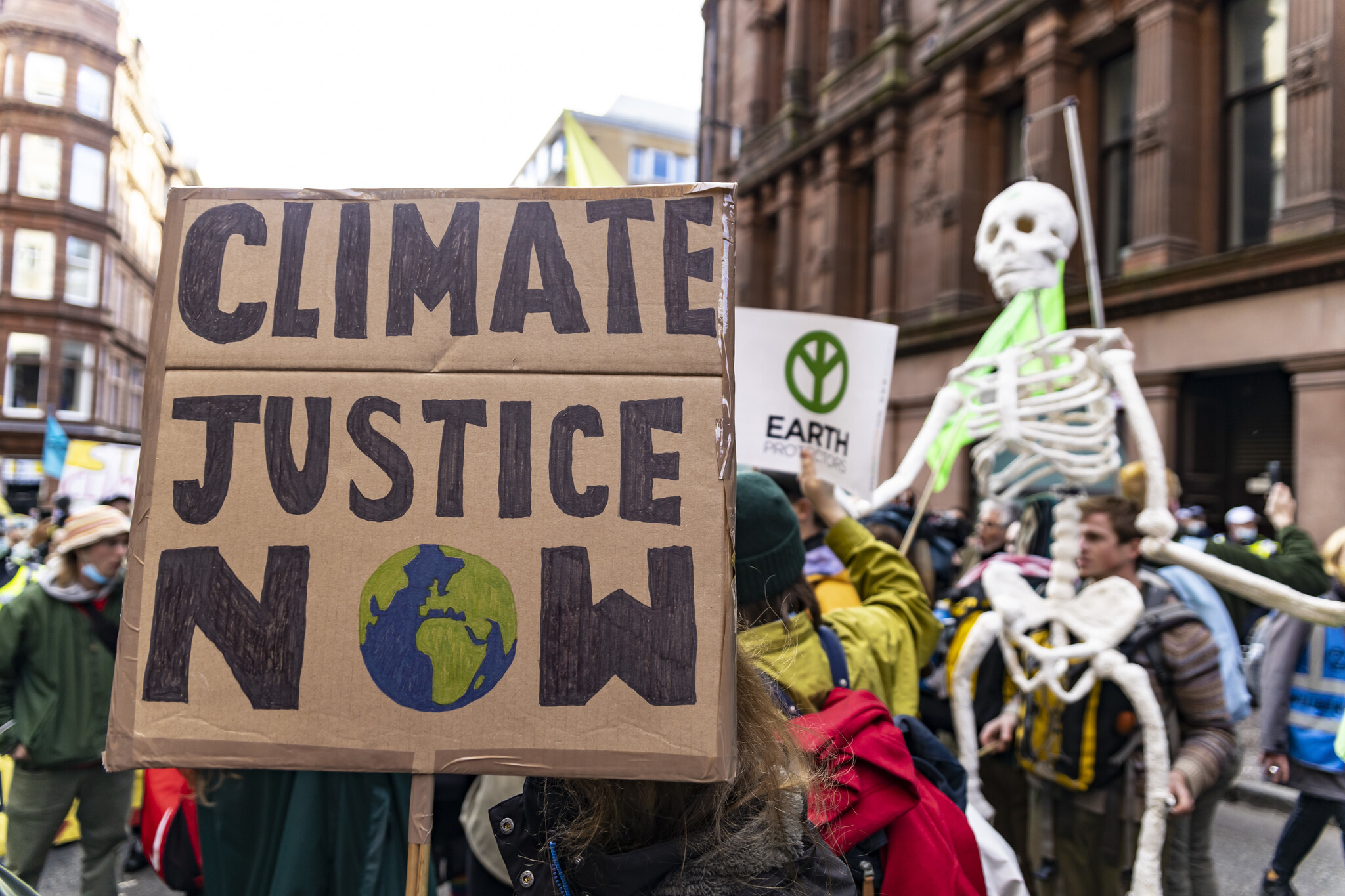Levels of eco anxiety are at an all-time high, intensified by is what seen by many as a failed climate summit. Could optimism be an essential resource in confronting the climate crisis?
COP26 is viewed as a failure by many. From accusations of greenwashing after the presence of fossil fuel industries inside The Green Zone, to weakened language in the final pact as “phase out” coal turned to “phase down” coal. The nail in the coffin of a ‘successful’ COP was hammered in when researchers estimated a warming of 2.4°C above pre-industrial levels, based on countries’ current pledges to reduce emissions – far from the 1.5°C goal.
Despite this disappointment, positive steps forward were made. In the Glasgow pact, nearly 200 countries agreed to revisit their pledges next year with the goal of ‘keeping 1.5 alive’. It was also agreed to phase out fossil fuel subsidies and to significantly increase money given to poor countries to help them cope with the effects of climate change and become greener.
The pact, while a step in the right direction, left many feeling disillusioned and defeated. Especially for countries in the global south who already face the effects of global heating on a daily basis. While the importance of striving to limit heating to 1.5°C should not be devalued, it should also not be viewed as a singular threshold at which we must accept defeat and stop fighting for a better future. In fact, being optimistic may be an crucial resource in fighting climate change.
Bina Venkataraman, journalist and science policy expert, explains that optimism is a fundamental tool. Not as blind hope, but as a state of engagement with the future. In the face of soaring eco anxiety, many people are feeling overwhelmed. But, by consciously engaging with these emotions, rather than suppressing them, they can be used as fuel for finding solutions. She believes that climate defeatism is even more damaging than climate denial, and it’s a feeling that’s spreading quickly. And that in order to create a better future, we first need to be able to imagine one. The only way to do that is to have optimism.
Venkataraman notes that a defeatist attitude not only halts progress towards a better future, but it potentially halts efforts to prepare for some inevitable future impacts. Without engaging with the future we run the risk of being ill prepared for more extreme weather and frequent famines. The importance of not shying away from an impossible problem was exhibited no clearer than in the governments delayed handling of COVID 19. By ignoring the problem instead of preparing for it, it only got worse. Turning fear into action – while daunting – may be the only option that will bring change.
While disappointment and frustration with policy makers is natural, Fiona Harvey, The Guardian’s environment correspondent, tells us that we have a choice in how and if we utilise those feelings. Change can come at all levels: while governments make policy, the economic influence businesses have should not be undervalued. Holding them to account on climate goals and keeping a sharp eye out for greenwashing will lead to a more successful fight against climate change.
Of course, turning optimism into global strategy is no small task. But, by having optimism and building a universal sense of solidarity it becomes possible to engage positively with the problem and make tangible solutions.
Image via Flickr by Mídia NINJA

